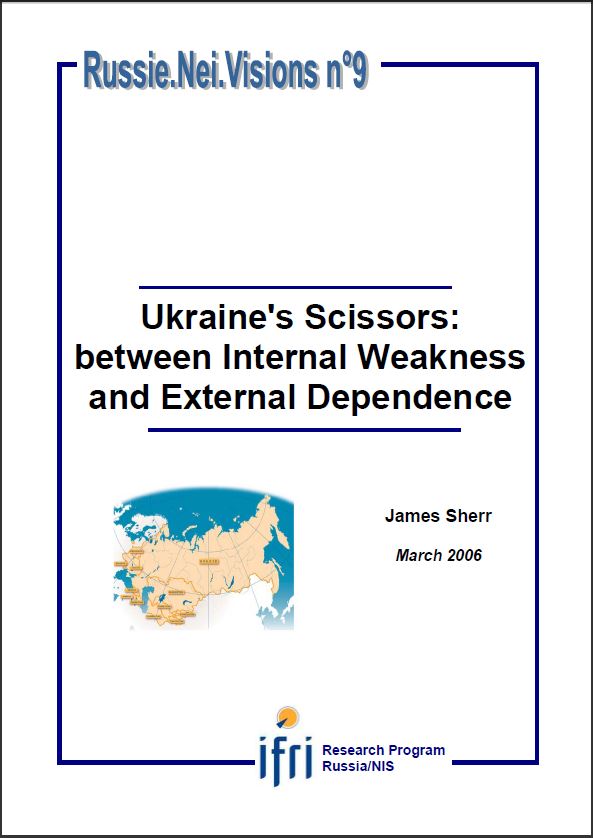Ukraine's Scissors: between Internal Weakness and External Dependence

Barely one year after the Orange Revolution, Ukraine finds itself in the midst of fresh internal and external dislocations. In one respect, the revolution promises to be enduring. Ukraine is a democratic country with a vigorous political life, and a return to state intimidation and political stagnation is no longer feasible. But the revolution has not fulfilled its central promise: the emergence of authorities who, finally, would govern in the interests of the country rather than themselves. With few exceptions, there has been no attempt to challenge the country's dysfunctional institutional inheritance or replace the culture of patronage with meritocracy. This failing has not only created new internal cleavages, but reopened old international vulnerabilities. The Russian Federation has recovered from its post-orange disorientation and is governed by an elite confident that the country's wealth and energy resources can be used to create a 'sphere of predominance' on the doorstep of the EU. Russia's gas diplomacy in Ukraine, a key corridor to European consumers, reinforces the EU's broader stakes in Ukraine's capacity and trajectory. Without indulging Ukraine's illusions about EU membership, the EU needs to develop channels of integration that are both realistic and mutually beneficial.
Download the full analysis
This page contains only a summary of our work. If you would like to have access to all the information from our research on the subject, you can download the full version in PDF format.
Ukraine's Scissors: between Internal Weakness and External Dependence
Related centers and programs
Discover our other research centers and programsFind out more
Discover all our analysesThe Caspian Sea as an Emerging Energy Hub : Potentials and Limitations
This report analyzes the prospects of the Caspian Sea region — and its key actors except for Russia and Iran — becoming an important energy hub serving the needs of the European Union (EU).
The European Union's Strategic Test in Georgia
The political crisis brewing in Georgia is of an existential nature for the country. What is at stake is Georgia's future as a democratic and sovereign European nation (EU).
Commanders of Putin's Long War: Purged, Reshuffled and Disgruntled
The trend of reshuffling the Russian top military command in the course of a fast-evolving and far from successful war has progressed unevenly both across the Armed Forces’ structures and in time. The rationale for and timing of the abrupt cadre decisions made by Commander-in-Chief Putin often defy logical explanation, and the rare official clarifications are no more informative than the usual information blackout.
Russian Military Manpower After Two and a Half Years of War in Ukraine
In addition to a military victory in Ukraine, the Russian leadership is planning to build up sizable troop formations for a possible conflict with NATO in the Baltic region and the Kola Peninsula. In particular, current plans aim for the military manpower to grow by about 350,000, reaching a total of 1.5 million soldiers and commanders. In the context of the current conflict in Ukraine, this cannot be accomplished without a new wave of mass mobilization.









